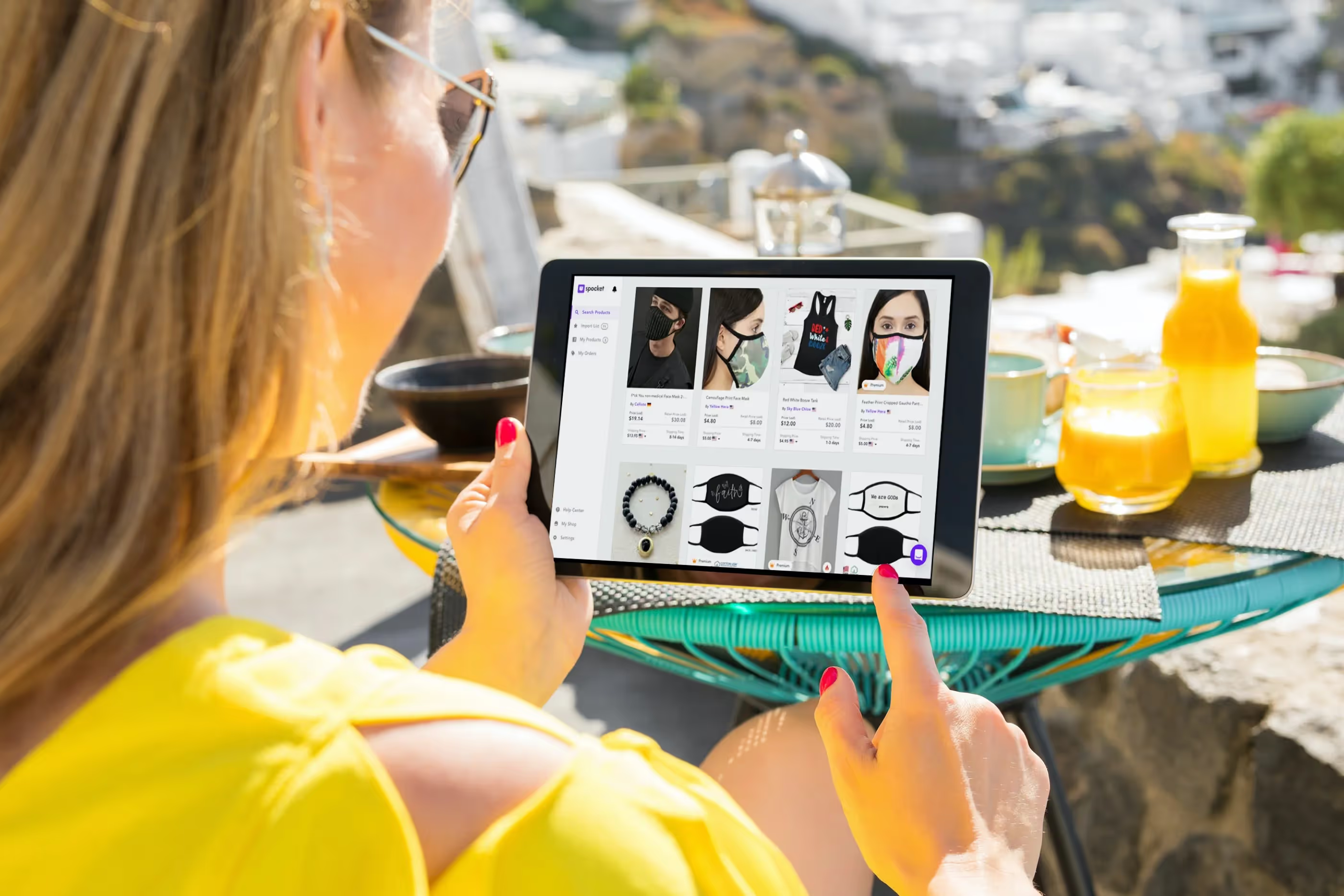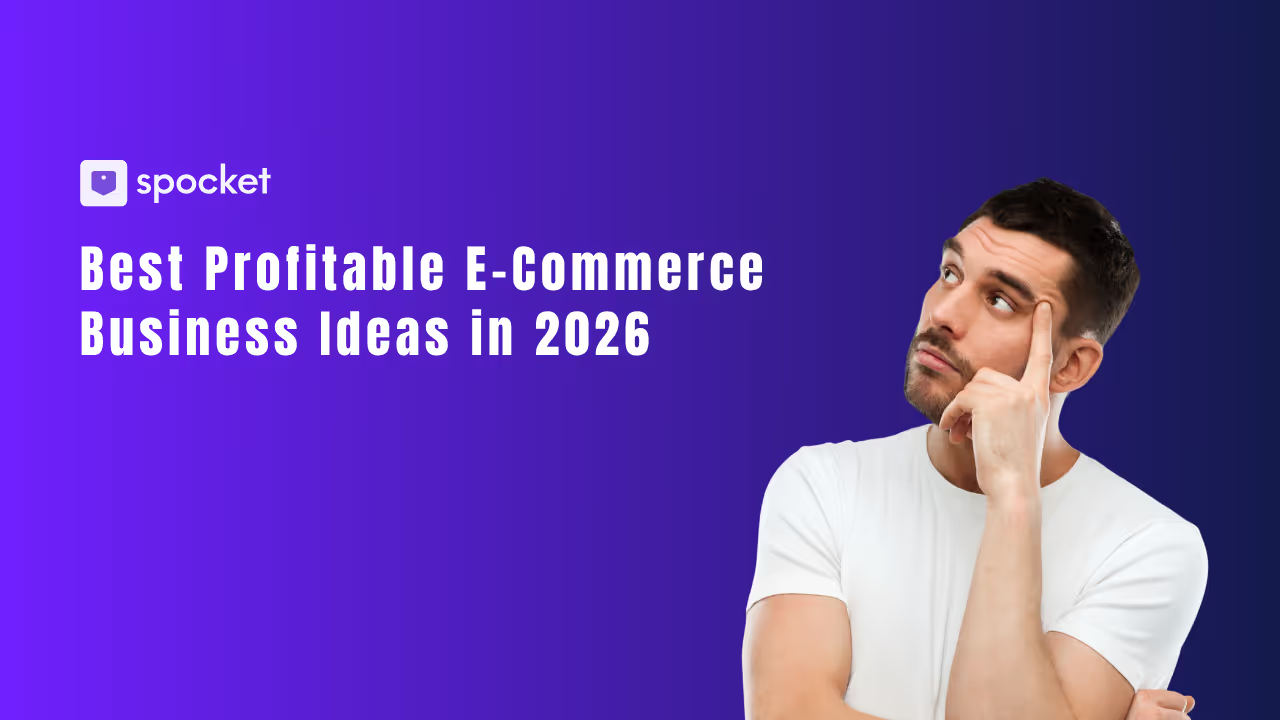The first half of 2020 has shown us that times of uncertainty can quickly call for new and innovative ways to market our businesses. As for the eCommerce sector, there never seems to be a shortage of new trends. Technologies of all sorts are quickly emerging in order for businesses to cater to the changing demands of their consumers.
In fact, the global eCommerce market is expected to reach $6.5 trillion by 2023 and with $3.5 trillion in sales just in 2019, this projected growth is creating huge opportunities for tech savvy entrepreneurs.

The biggest eCommerce trends propelling the rising, leverage leading-edge tech to enhance customer engagement and optimize conversion.
This year, you’ll need to get ahead of the competition by staying on top of the most advanced technology solutions to boost your dropshipping business and drive sales.
Let’s dive deeper into the latest eCommerce technology trends to focus on for the remaining year.
1. Voice-Assisted eCommerce
One technology that is rapidly shaping the future of eCommerce is voice-assisted technology. UK-based Juniper Research anticipates that by 2023 consumers will interact with 8.4 billion voice-assistant devices. As more households adopt this technology, placing an Amazon Alexa, Apple Siri, Google Assistant, and others at the center of daily purchasing adding voice search capabilities to your eCommerce business is one tech trend that can propel your business in 2026.
How can you drive voice search traffic to your site? Consider these 3 steps:
- Optimize your site for voice search
- Structure your content to answer common voice search questions
- Focus on natural language, not keywords
2. Customer Service Chatbots
Another integration to consider for eCommerce businesses is chatbot-based customer service. Chatbots interact with users in natural language, providing around the clock, personalized care to enhance engagement and retention. A successful dropshipping business uses chatbots to upsell, an make the customer journey more personalized.
Using advanced artificial intelligence, this software interacts with users via messaging applications, allowing businesses to communicate with a large number of customers without in-house service personnel. According to a survey from Oracle, 80% of businesses will use chatbot automation in 2026 making this a leading eCommerce technology trend this year.
AI-driven platforms can handle a wider range of queries and personalization than rule-based chatbots. Build the best AI-powered chatbot for your business needs:
- Chatfuel is a leading free chatbot platform for FB Messenger
- For Shopify, Yotpo, and other merchants, Octane.ai delivers integrated FB remarketing solutions
Manychat is another excellent option for a chatbot that assists conversion

3. Machine Learning-Driven Marketing
One of the most important keys to eCommerce business success is effective, conversion-oriented marketing. Using advanced machine learning algorithms for data analysis, online marketers are increasingly able to automate and personalize the shopping experience.
Insights gleaned from data will offer specific recommendations based on customer preferences, giving eCommerce sellers a powerful tech tool to drive click-through rates and sales. Machine learning is constantly evolving, so keeping up with AI-assisted marketing trends for eCommerce is vital to the success of any online seller in 2026.
What’s the best way to leverage machine learning in your marketing strategy?
- Gather data and then segment customers accordingly
- Create seamless, targeted omnichannel automated marketing workflows at every stage of your funnel
- Always test, measure, analyze, and tweak your campaigns

4. Video Marketing
HubSpot reports that in 2020, 85% of businesses are using video as a marketing tool. Trying to catch the eye of an increasingly distracted audience can be difficult, but with embedded video, eCommerce businesses can drive interest in a product and deliver information in an easy-to-view format.
Video drives user engagement and stops potential customers from scrolling past products, with as much as 90% of consumers making purchasing decisions based on embedded videos. Increase user understanding of specific products, drive click-through rates on your eCommerce website, and boost conversion with video marketing content.
Here’s are some ideas for video content you can add to your eCommerce website:
- Highlight product features and functionality
- Feature real, live customers reviews
- Tell a story about your products
- Tell your customers about yourself, your business, and your mission
Check out a great example of a product marketing video from Kelty.
5. Augmented Reality
Augmented Reality (AR) isn’t just for video games. Whether your consumer wants to see what a new couch will look like in their living room before committing or won’t buy glasses online unless they can really see if they fit, sellers are creating AR environments where consumers can test products virtually. Integrating 3D technology to improve consumer experience is a big tech trend in 2026 that will only grow in the coming years.
eCommerce businesses will benefit from emerging AR applications, delivering new opportunities to help buyers test out products before purchasing. Of course, AR shopping is only in its infancy. The future of eCommerce will see consistent growth in AR-enhanced environments as technology develops and consumer demand increases in concert. According to a survey from CRO experts Invesp, 63% of consumers surveyed report that AR improves their shopping experience. Nearly the same number of respondents would choose a seller with AR integration over one without, making this one technology worth adopting in 2026.
Want to know how to enrich your eCommerce business with augmented reality?
- Shopify AR lets sellers add AR features to product listings on their store easily
If your marketplace doesn’t offer AR integrations, here are a few solutions for creating your own AR customer experience:
- ZapWorks delivers a robust toolkit that helps online sellers create, launch, and analyze AR experiences

- For a simpler solution without customization, Augment offers pre-built AR integration for your eCommerce business

6. Expanding B2B Market
eCommerce is often thought of as a predominantly B2C industry. However, this doesn’t mean that there isn’t room for B2B in the eCommerce market.
According to Statista, global retail eCommerce sales for B2B are expected to reach $4.2 billion in 2020 and $6.5 billion by 2023. On top of that, market research firm Forrester anticipates eCommerce B2B sales will account for 17% of the US market by 2023.
Advanced technology solutions are paving the road for a seamless transition to online selling, with Enterprise Resource Planning (ERP) software integration keeping back-office processes streamlined and front-office automation simplifying operations. Thanks to emerging tech, this sector’s growth is trending in 2020.
Here are some ERP functionalities for B2B eCommerce transformation:
Summary
If you want to succeed as an eCommerce entrepreneur in 2020, you’ll likely have to dig deep and integrate emerging tech tools. These futuristic trends will continue driving the growth of the multi-trillion, global eCommerce market for years to come, giving early starters a serious advantage.
Online sellers embracing transformational technology can improve the shopping experience, drive customer engagement, and propel conversion rates while streamlining operations and processes.
So, what’s the bottom line? Getting ahead of these future technology trends will empower you to keep growing your businesses in 2026 and beyond.
This post was written by our partner, Payoneer. Click here to learn more







































